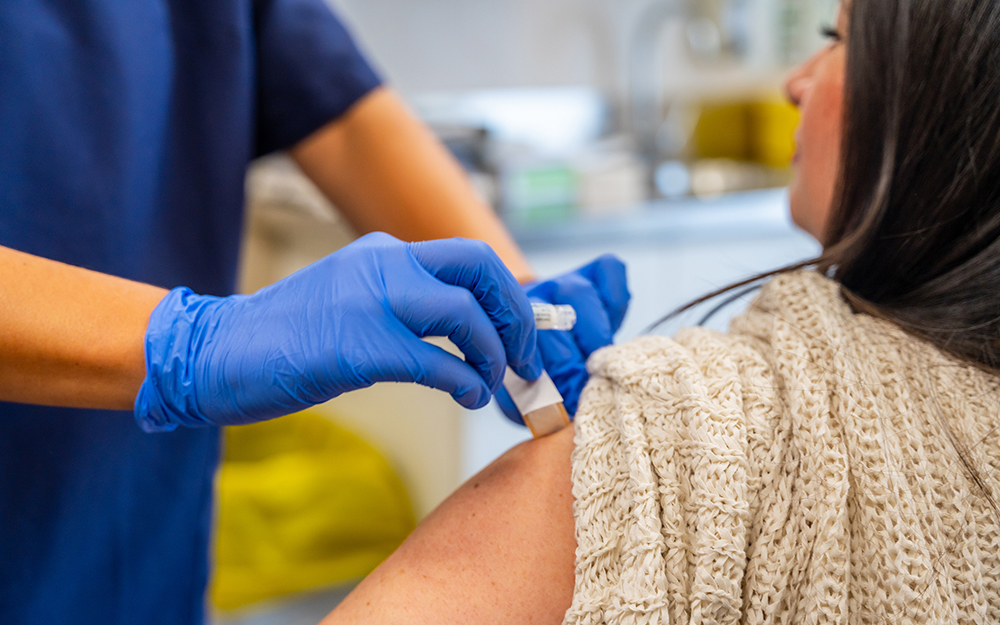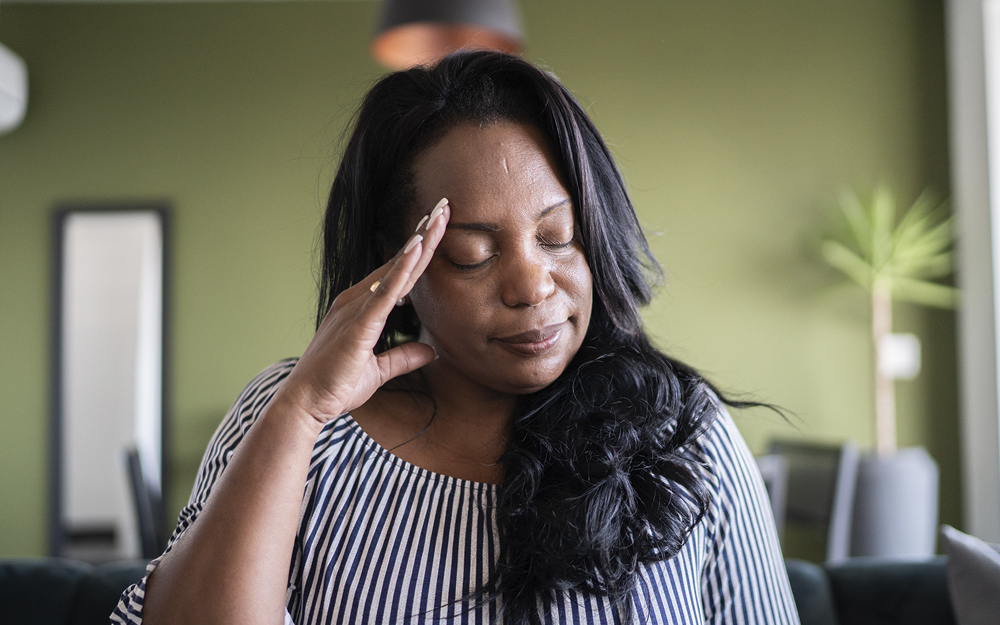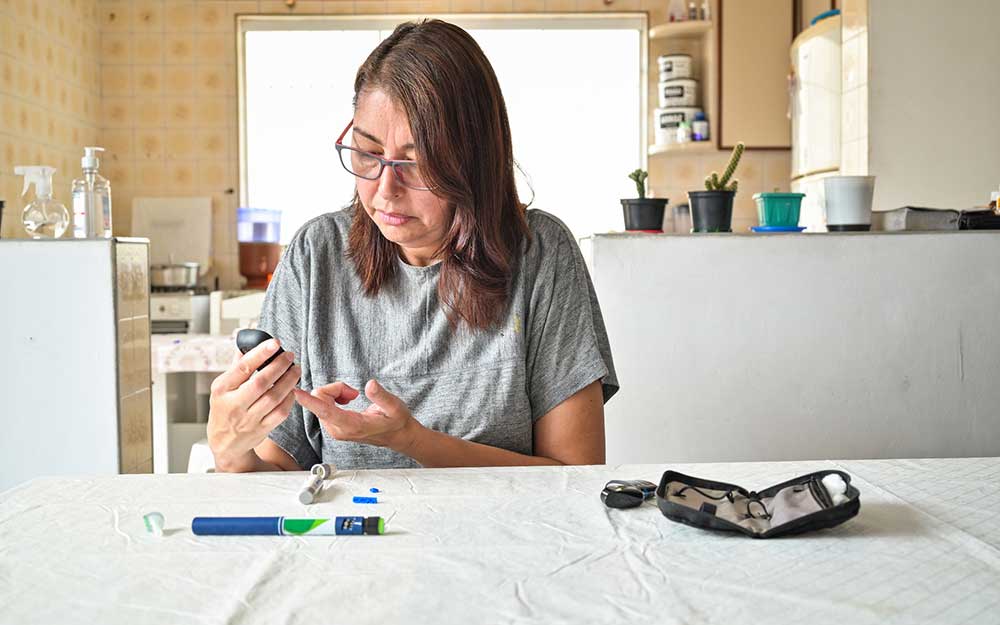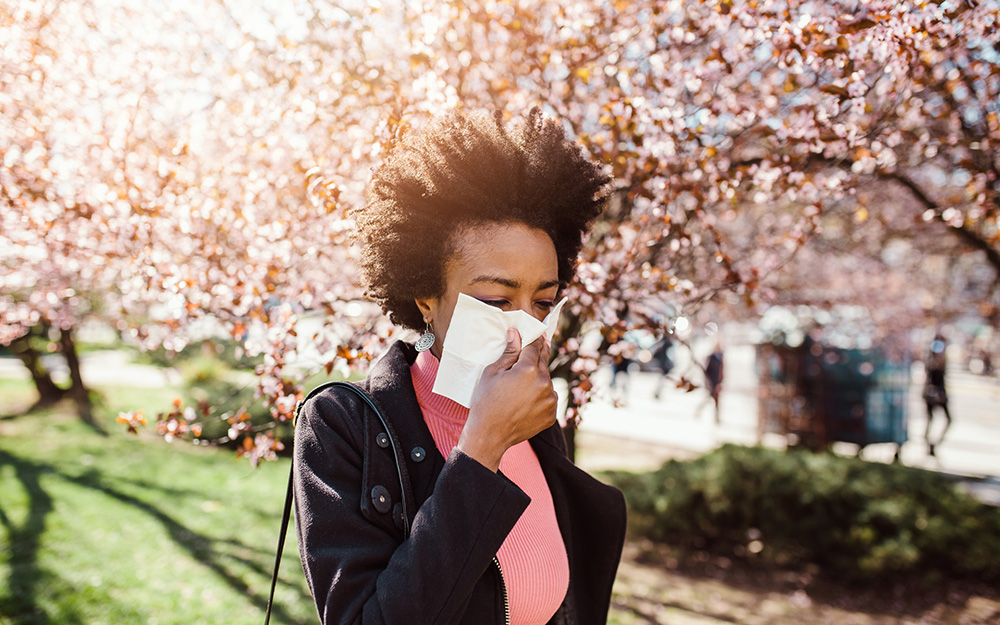COVID-19 and Flu Shots Provide a Double Dose of Protection
Date
November 30, 2023

Date
November 30, 2023
Credits
Medical providers featured in this article


In Brief
{{cta-block}}
Each fall, Americans nationwide turn to their primary care physician or local pharmacy for a dose of personal protection against seasonal illness. The annual flu vaccine is a time-honored routine for millions, and this year, signing up for the ritual jab—as well as for the latest COVID-19 updated vaccine—is more vital than ever.
“At this time of year, I get a lot of questions about the flu shot—usually variations on, ‘Do I really still need it?’” said Michael Ben-Aderet, MD, associate director of infection control in Hospital Epidemiology at Cedars-Sinai. “The answer, of course, is ‘yes.’ Flu has a predictable pattern: It peaks during the winter months, then goes down. Giving people additional immunity reduces the severity of the disease and saves lives.”
Surges in COVID-19 are more difficult to forecast, but being inoculated against the virus that causes COVID-19 is equally critical, according to Ben-Aderet.
“I know people are tired of hearing about COVID-19. I’m tired of it, too. But it can be really debilitating, and we still see patients getting hospitalized. Until it’s done with us, we can’t be done with it,” he said. “The good news is the vaccinations work extremely well by targeting the most recent variants.”
{{providers}}
Enoch Arhinful, MD, a Cedars-Sinai physician specializing in internal medicine, helps patients understand the importance of receiving the COVID-19 updated vaccine by putting it in context.
“I explain to them that, like any virus, SARS-CoV-2 (the virus that causes COVID-19) shifts in its genetic makeup over time, ultimately becoming so different from the initial variant that it’s difficult for our immune systems to recognize,” he said. “Imagine having a picture ID of a baby and then, years later, trying to validate that child’s identity with the old photo. This new, updated vaccine gives our bodies a current picture of how the virus that causes COVID-19 actually looks today, which allows them to do a better job identifying the virus and fighting it off.”
Still, some patients remain resistant to convincing.
“With COVID-19, there are patients who, no matter what new evidence comes available, don’t seem willing to take up the vaccine,” Arhinful said. “Some are hesitant because they never got it in the first place, and so they don’t have any experience with it. Others may have had a small reaction from the initial vaccine and are worried about that discomfort happening again. However, based on my observation and experience, it appears that the number of people open to the vaccine is steadily increasing.”
"I know people are tired of hearing about COVID-19. I’m tired of it, too. But it can be really debilitating, and we still see patients getting hospitalized. Until it’s done with us, we can’t be done with it."
For many people, the politicization of the COVID-19 vaccine has presented a significant obstacle to overcome. By contrast, the flu shot has been seen as much less objectionable.
“The flu vaccine is not as emotionally charged as the COVID-19 vaccine, and elderly and immunosuppressed patients are much more likely to see it as part of their regular, preventive healthcare,” Ben-Aderet said.
Fortunately, he continued, the COVID-19 vaccine is less controversial now that it has become an accepted fixture of everyday life.
“In 2020, there was a lot of misinformation about vaccines and masking, and debates about the basic value of vaccination were a much bigger topic of discussion,” he said. “The tone today is a lot more civil and evidence-based, and I’m thankful for that.”
Side effects from both COVID-19 and flu vaccines tend to be mild.
“You might have a sore arm where the shot was given or feel a little malaise—perhaps a headache or a slight fever,” Ben-Aderet said. “Those symptoms will pass and are preferable to getting sick with either disease.”
The vaccines are widely available, and Arhinful urges people not to be deterred by cost.
“Many pharmacies partner with the Centers for Disease Control and Prevention, so even if you don’t have insurance, you should be able to get your shots,” he said.
For immunized individuals, the vaccinations can provide some crucial peace of mind during the upcoming holidays.
“I always reassure my patients that these vaccines are highly effective,” Arhinful said. “If they do end up getting exposed to flu or the virus that causes COVID-19, their bodies should be well-equipped to handle them.”





